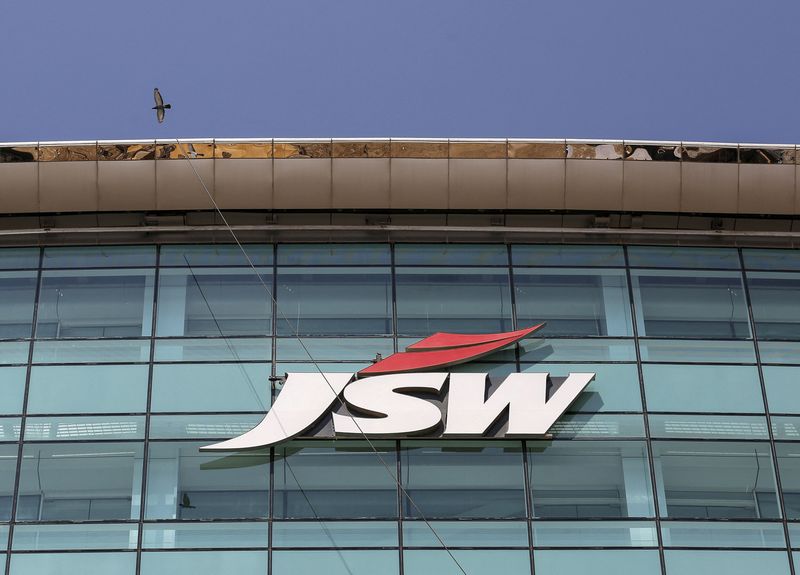By Aditi Shah and Neha Arora
NEW DELHI (Reuters) - Indian steel-to-energy group JSW is in early stage talks with Korea's LG Energy Solution (LGES) about jointly manufacturing batteries in India, two sources told Reuters, as it presses ahead with plans to build electric vehicles locally.
JSW held talks with senior LGES executives in Korea earlier this month, proposing a partnership to manufacture battery cells in India for EVs and energy storage, one of the people with direct knowledge of the discussions said.
LGES and JSW both declined to comment on any discussions.
The Indian company is also talking to other battery players including China's CATL and Japan's Panasonic (OTC:PCRFY) and Toshiba (OTC:TOSYY) as it looks to build a local supply chain for EVs, said the second person, who is familiar with JSW's EV plans.
"Due diligence wise JSW is talking to a lot of people because it needs an ecosystem for an EV. It is looking at storage, motors, battery management," the person added.
LGES, which supplies battery cells to major automakers including Tesla (NASDAQ:TSLA) and General Motors (NYSE:GM), has asked JSW to share details of its requirements for EVs and energy storage, the first source said.
A third source briefed on JSW's EV plans said the company wants to set up a factory to produce 20 gigawatt hour (Gwh) of battery capacity in phases by the end of this decade, starting with 8 Gwh in the first phase.
JSW's billionaire chairman Sajjan Jindal has publicly aired his desire to build EVs and its talks to buy a stake in China's MG Motor.
Discussions with MG Motor are now on the backburner and JSW is in talks with Chinese automaker Leapmotor (HK:9863) to license technology to build EVs in India under its own brand, sources told Reuters last month.
Panasonic declined to comment. Toshiba said it is not able to confirm "at this point" if it is in talks with JSW for a partnership to build battery cells. CATL did not respond to a request for comment.
All three sources declined to be identified as the talks are still ongoing and a final decision has not been made.
BATTERY INCENTIVES
India's EV market is small but growing, with home-grown Tata Motors (NYSE:TTM) dominating sales. Electric models made up less than 2% of all cars sold last year and Prime Minister Narendra Modi's government wants to increase this to 30% by 2030.
It is offering companies billions of dollars in incentives to locally produce batteries and other EV components, and is working on a new policy for EVs that offers lower import tax in return for investment in local manufacturing.
Tesla is also eyeing India and is in talks with the government to build EVs and batteries there.

JSW's talks with LGES come as the Korean company looks to deepen its presence in the world's third-largest car market where it opened an office in India's capital New Delhi earlier this year to grow its automotive, mobility and energy storage business, a government filing showed.
LGES, which already supplies imported battery cells to India's top two electric scooter makers SoftBank (TYO:9984) group-backed Ola Electric and home-grown rival TVS Motor, is in talks with more companies, one of the sources added.